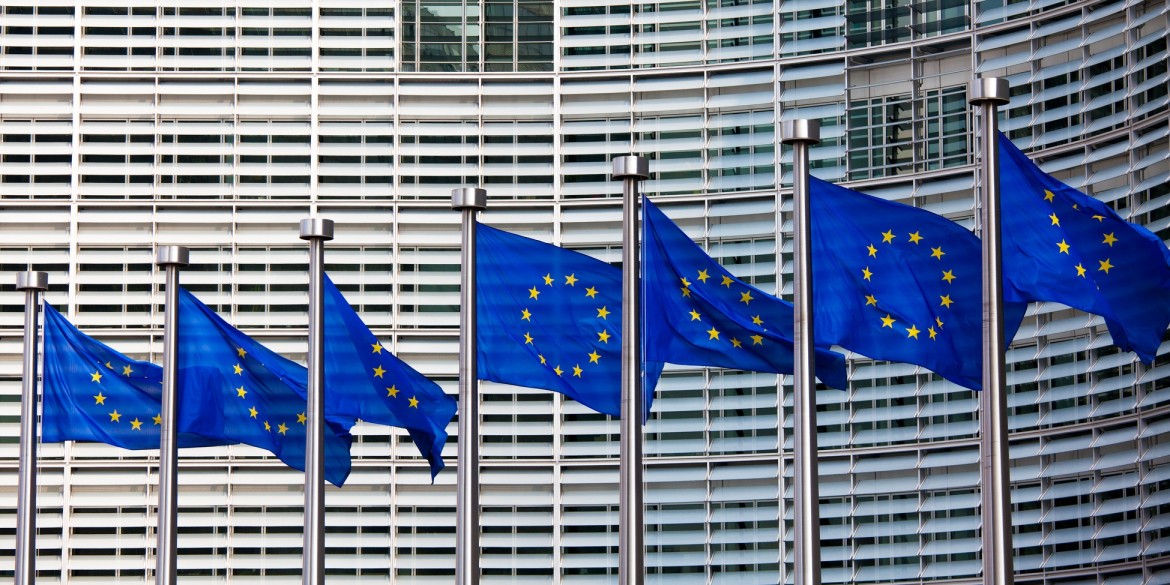Commentary
Will Europe resist the changing world?
With China interested in new sea routes, Europe has a choice: it can keep thinking only of the interests of the major continental powers, or take a broader, more unified view, aiming to play a double role in linking the continent’s east and west, as well as the north and the Mediterranean south.

Europe has awoken: the notions of blocking foreign investments, closing contracts unilaterally, prohibiting acquisitions by businesses receiving state aid, etc., have entered the official language of the EU, and will likely be followed by binding regulations.
What has made this language, until recently restricted to the “sovereignists,” suddenly popular is the new phase in the relations with China, which, after a slow incubation, are now developing at an accelerated pace, due to Trump’s distance and the start of the European election campaign.
Now, there will be pushback, and the Franco-German duo, who feel that Italy snuck in ahead of them, will attempt to be the leaders of the new anti-China resistance in the name of Europe. But what kind of Europe will it be—and what will it aim for?
So far, the flow of goods between China and Europe has bypassed Italy, going directly to Germany on the land route, and to French and, first and foremost, Dutch and German megaports on the sea route, which are properly equipped and efficient both in loading and unloading operations and in terms of industrial assembly activities in industrial areas on the outskirts of the ports.
The development of a “Mediterranean Way,” adding ports in Genoa, Trieste and Greece, could be an important alternative, both right now and for the future, especially considering China’s growing interest in Africa.
In short, a Silk Road to the south, in the middle of the Mediterranean, could be a new factor in the geopolitical scenario, changing the traffic routes produced by the new international division of labor.
In this new scenario, Europe has a choice: it can keep thinking only of the interests of the major continental powers, or take a broader, more unified view, aiming to play a double role in linking the continent’s east and west, as well as the north and the Mediterranean south.
We are talking about a major difference in approach. The agitation which has taken over the relations between European countries has arisen precisely from the strategic importance of this issue.
The grand European project has stalled. The redesign of the great geopolitical areas of the new phase of globalization that is taking place before our eyes is centering around a few massive poles. Thus, Europe is faced with two possible paths.
It can choose continuity, committed exclusively to the West, NATO and the protection of the US—but this has no future. It has no future because of the United States’ withdrawal into pursuing only their national interest. It has no future because it does not put us in a position to deal with the extraordinary migration emergency that will take place in the continent that is closest to us. With such a continuity-based approach, Europe is likely to be split down the middle, with France and Germany on one side and the countries at the Mediterranean on the other, the latter destined to become territories in limbo into which the contradictions of the new century can be unceremoniously dumped.
This is why we have to think of another way, of another Europe, of something new on the world stage, a power that would aspire to place itself in a Eurasian and Mediterranean context.
Is it an unlikely and sci-fi-sounding scenario? Yes, for now. But doesn’t the crisis that Europe is experiencing require the courage of a profound and long-ranging way of thinking, one that would look towards the future? And shouldn’t the question of which Europe we want to be, and with what role, be central for the next European elections? Will we approach this as we always do, with the customary small-minded regulations to protect us from the danger coming from the east, with each country carving out a small space at the margins for itself—or, instead, with the ambition to search for a solution for the future? And what about the left? Has it surrendered to the mere purpose of winning elections? Is it going from Tsipras to Macron—and to accomplish what, exactly?
What about the young people who have taken to the streets to fight for the climate? Shouldn’t we try to call on them to design a future that would go beyond the obsession with production and the exchange of material goods, one moving towards a solution to the problems of mass migrations that climate change is already unleashing before our eyes, one moving towards a project of rebalancing the growing inequalities?
Does this raise more questions than it currently answers? Of course. But, when history is on the move and the future is uncertain, the answers cannot be found by looking at our past. They can only come if we have the courage to ask ourselves the questions that the present is laying before us.
Originally published at https://ilmanifesto.it/lo-stallo-europeo-in-un-mondo-che-cambia/ on 2019-03-24
